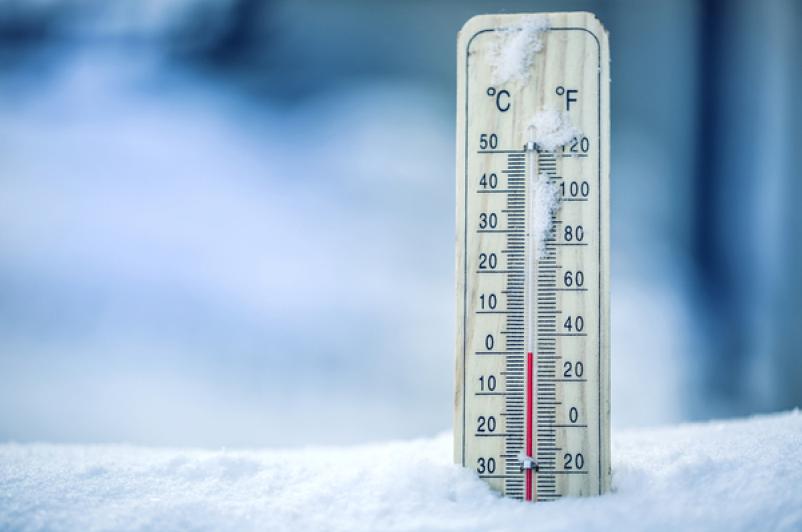

Take precautions as temperatures get low
January 20, 2025
With frigid temperatures in the forecast, we want to remind everyone that serious health problems can result from prolonged exposure to the cold.
And while cold weather is nothing new to the Southern Tier, it’s good to remind ourselves just how to cope with snow, ice, a deep freeze and wind gusts. A few simple precautions can mean the difference between catastrophe and safety.
Here are a few tips from experts about handling cold weather and avoiding its worst consequences:
- If possible, adjust your schedule to avoid being outside during the coldest part of the day or night. Stay indoors and avoid travel as much as feasible.
- Dress for the outdoors even if you don't think you'll be out much. Make sure you have a warm coat, hat and gloves that will keep you well-covered, so that you don’t leave large areas of skin exposed. Have a change of clothes ready in case what you’re wearing gets wet.
- Wear sturdy boots. Have hand and foot warmers at the ready.
- Keep your children warm and indoors. Don’t let them wait outside for the school bus for a long period of time. If you have an infant at home, have plenty of gear on hand, such as extra diapers, formula and food.
- If you have pets or farm animals, make sure they have plenty of food and water, and are not overly exposed to extreme cold.
- Ensure that your car emergency kit is well-stocked if you do have to drive somewhere. Put blankets or sleeping bags in your vehicle in case you should get stranded in traffic or on a lonely road.
- Fill your gas tank. Make sure your car or other vehicle has at least half a tank of gas during extreme-cold situations so that you can stay warm if you become stranded.
- Your travel survival kit should also include flashlights with fresh batteries, jumper cables, a tool kit, cat litter for traction, ice scrapers and a snow shovel, flares or a reflective triangle, non-perishable food, water, and a first aid kit.
- Check your house. Take precautions to ensure that your water pipes don’t freeze. Know the temperature thresholds of your plants and crops.
- Have on hand at least one gallon of drinking water per person per day for at least three days. And be aware that high-protein foods can give you energy.
- Use a battery-operated or hand-cranked radio at home to stay informed in case the power goes out.
- Keep your cell phones' and other mobile devices’ batteries charged up. Keep a spare charger in your car.
- A simple bit of planning can help you avoid cold-weather problems.
Know the signs of frostbite and hypothermia
Frostbite is an injury to the body that is caused by freezing. Frostbite is most common on exposed skin, such as your cheeks, nose and ears. It can also occur on hands and feet. Early warning signs include numbness, loss of feeling or a stinging sensation.
Immediately get out of the cold if you suspect frostbite. Slowly warm the affected area — but don't rub it because that can damage your skin. Seek emergency care if numbness doesn't go away.
Hypothermia is abnormally low body temperature. When exposed to cold temperatures, your body begins to lose heat faster than it can be produced. Exercising in cold, rainy weather increases the risk of hypothermia. Older adults and young children are at greater risk.
Hypothermia signs and symptoms include:
- Intense shivering
- Slurred speech
- Loss of coordination
- Fatigue
Seek emergency help right away for possible hypothermia.
Keep safe and warm while you're inside
- Set your heat to at least 68–70°F. To save on heating bills, close off rooms you are not using. Close the vents and shut the doors in these rooms, and keep the basement door closed. Place a rolled towel in front of all doors to keep out drafts.
- Make sure your house isn't losing heat through windows. Keep your blinds and curtains closed. If you have gaps around the windows, try using weather stripping or caulk to keep the cold air out.
- Dress warmly on cold days even if you are staying in the house. Throw a blanket over your legs. Wear socks and slippers.
- When you go to sleep, wear long underwear under your pajamas, and use extra covers. Wear a cap or hat.
- Make sure you eat enough food to keep up your weight. If you don't eat well, you might have less fat under your skin. Body fat helps you to stay warm.
- Drink alcohol moderately, if at all. Alcoholic drinks can make you lose body heat.
- Ask family or friends to check on you during cold weather. If a power outage leaves you without heat, try to stay with a relative or friend.
Warming Centers
The Broome County Office of Emergency Services and the Department of Social Services (DSS) have identified several warming centers and emergency shelter resources available during the colder temperatures. To see the list of warming centers, click here.
--
Learn more about winter weather safety, click here.

